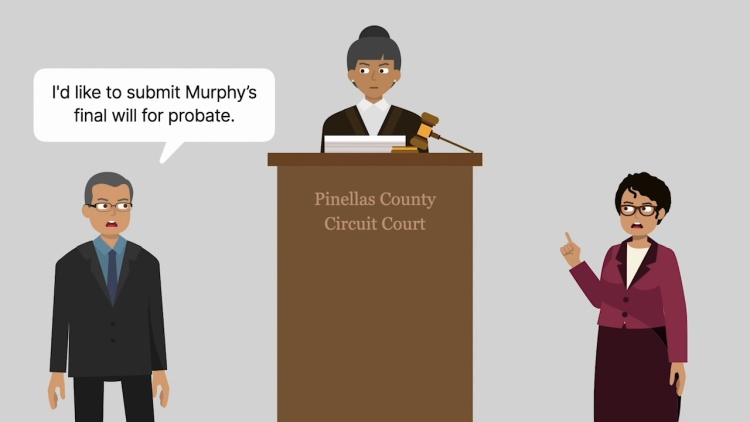In re Estate of Murphy
Florida District Court of Appeal
184 So. 3d 1221 (2016)
- Written by Liz Nakamura, JD
Facts
Virginia Murphy, decedent, executed wills in 1989, 1991, February 1992, August 1992, 1993, and 1994. Murphy’s estate was worth approximately $12 million, and she had no living children, spouse, or close relatives. In each will, Murphy included specific bequests to Jacqueline Rocke (plaintiff), Murphy’s second cousin; to the estate attorney who drafted all six wills, Jack Carey (defendant); and to Carey’s secretary, Gloria DuBois. The primary differences between the six wills were in the residuary clauses, which changed the named beneficiary from Northwestern University in 1989, to a split between Rocke, Carey, and DuBois in 1991 and February 1992, and finally to Carey and DuBois alone from August 1992 onward. Starting with the August 1992 will, the only bequest given to Rocke was $400,000. After Murphy’s death, Carey submitted the 1994 will to probate and Rocke objected, arguing that the 1994 will should be voided as the product of undue influence and the substantially similar February 1992 will should be reestablished and probated instead pursuant to the doctrine of dependent relative revocation. The probate court found that Carey and DuBois had exerted undue influence over Murphy, which voided the residuary clause of the 1994 will, but further held that the revocation clause in the 1994 will still validly revoked all prior wills, and that the drastic differences between Murphy’s six wills rendered the doctrine of dependent relative revocation inapplicable. The probate court therefore directed that the residuary estate be distributed among Murphy’s 48 intestate heirs, none of whom she knew except for Rocke. Rocke appealed.
Rule of Law
Issue
Holding and Reasoning (Lucas, J.)
What to do next…
Here's why 907,000 law students have relied on our case briefs:
- Written by law professors and practitioners, not other law students. 47,100 briefs, keyed to 996 casebooks. Top-notch customer support.
- The right amount of information, includes the facts, issues, rule of law, holding and reasoning, and any concurrences and dissents.
- Access in your classes, works on your mobile and tablet. Massive library of related video lessons and high quality multiple-choice questions.
- Easy to use, uniform format for every case brief. Written in plain English, not in legalese. Our briefs summarize and simplify; they don’t just repeat the court’s language.





